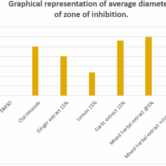
Is It Safe to Take Antidepressants During Pregnancy? (2025 Guide)
Table of Contents
Antidepressants during pregnancy, did you know that up to 20% of pregnant women experience depression during pregnancy? I’ve spent years counseling expectant mothers through this challenging decision. Making choices about antidepressant use during pregnancy can feel overwhelming – but you’re not alone! In this comprehensive guide, we’ll explore everything you need to know about antidepressant safety during pregnancy, backed by the latest 2025 medical research.
Why Mental Health Matters During Pregnancy.
Depression during pregnancy, also known as antenatal depression, is more common than many realize. It affects nearly 1 in 5 pregnant women and can manifest in various ways, including feelings of sadness, hopelessness, fatigue, and difficulty bonding with the unborn baby. Addressing depression during pregnancy is crucial because untreated depression can have significant consequences for both the mother and the child.
The Risks of Untreated Depression for Both Mother and Baby
For the Mother:
- Increased Risk of Postpartum Depression: Untreated antenatal depression significantly raises the likelihood of developing postpartum depression, which can interfere with mother-child bonding and long-term well-being.
- Poor Prenatal Care: Women with untreated depression may struggle to attend prenatal appointments or follow recommended health guidelines, such as proper nutrition and avoiding harmful substances.
- Physical Health Complications: Depression can weaken the immune system and increase the risk of pregnancy complications, such as preeclampsia and preterm labor.
For the Baby:
- Low Birth Weight and Premature Birth: Research shows that untreated maternal depression is associated with lower birth weights and an increased likelihood of preterm delivery.
- Developmental Challenges: Babies born to mothers with untreated depression may face developmental delays, including cognitive and emotional challenges.
- Long-term Emotional Impact: The baby may be at a higher risk of experiencing anxiety, depression, or behavioral issues later in life due to altered maternal bonding and stress during pregnancy.
Types of Antidepressants and Their Pregnancy Safety Profiles.
Selective Serotonin Reuptake Inhibitors (SSRIs) represent the most commonly prescribed class of antidepressants during pregnancy. SSRIs work by increasing serotonin levels in the brain and include medications like sertraline (Zoloft), fluoxetine (Prozac), and citalopram (Celexa). Research indicates that Zoloft is often considered a first-line treatment option during pregnancy due to its extensive safety data and relatively low risk profile. Prozac also shows a strong safety record, though it has a longer half-life that requires careful consideration during late pregnancy. Antidepressants during pregnancy.
Serotonin-Norepinephrine Reuptake Inhibitors (SNRIs) form another important category, including medications like venlafaxine (Effexor) and duloxetine (Cymbalta). These medications work on both serotonin and norepinephrine neurotransmitters, making them particularly effective for depression with anxiety components. However, SNRIs require closer monitoring during pregnancy, especially in the third trimester, due to potential effects on blood pressure and fetal heart rate. Antidepressants during pregnancy
Tricyclic Antidepressants (TCAs), such as nortriptyline and amitriptyline, represent an older class of medications. While they have a long history of use during pregnancy, TCAs typically aren’t first-line treatments due to their side effect profile. However, they remain important options for women who haven’t responded well to SSRIs or SNRIs. The extensive long-term data available on TCAs can actually make them a safer choice for some pregnant women, particularly those with a history of successful treatment using these medications .Antidepressants during pregnancy
The FDA previously used letter categories (A, B, C, D, X) to classify medication safety during pregnancy but has transitioned to a more comprehensive labeling system. This new system provides detailed risk summaries and clinical considerations rather than simple letter grades. Under the current guidelines, most commonly prescribed antidepressants fall into what would have been Category C, meaning that while risks exist, the benefits may outweigh these risks for many women.Antidepressants during pregnancy
Each medication carries its own specific risk-benefit profile:
SSRIs:
- Sertraline (Zoloft): Generally considered one of the safer options, with extensive pregnancy data
- Fluoxetine (Prozac): Well-studied but requires careful timing due to its long half-life
- Escitalopram (Lexapro): Shows relatively low risk but has less pregnancy data than older SSRIs
SNRIs:
- Venlafaxine (Effexor): Requires careful monitoring, particularly for blood pressure
- Duloxetine (Cymbalta): Limited pregnancy data compared to SSRIs, but remains an option when benefits outweigh risks
TCAs:
- Nortriptyline: One of the better-studied TCAs during pregnancy
- Amitriptyline: Long history of use but requires careful dosing and monitoring
When selecting an antidepressant during pregnancy, healthcare providers consider several key factors:
- The woman’s prior response to specific medications
- The severity of depression
- Stage of pregnancy
- Presence of other health conditions
- Available safety data for specific medications
- Individual risk factors and preferences
This personalized approach ensures that each woman receives the most appropriate treatment for her situation, balancing mental health needs with pregnancy safety considerations. Regular monitoring and dose adjustments throughout pregnancy remain crucial, as the body’s changing physiology can affect how these medications are processed and their effectiveness. Antidepressants during pregnancy
Conclusion
Your mental health matters – both for you and your baby. Remember, every pregnancy is unique, and what works best for one mother may not be the ideal choice for another. Always work closely with your healthcare provider to develop a personalized treatment plan. Want to learn more? Schedule a consultation with your doctor to discuss your specific situation and options.
pregnancy depression treatment
Antidepressants during pregnancy
SSRI pregnancy safety
Zoloft during pregnancy
Prozac pregnancy risks
prenatal depression symptoms
antidepressants first trimester
depression medication pregnancy category
pregnancy mental health
SNRI pregnancy safety
maternal depression
gestational depression
pregnancy anxiety medication
safe antidepressants pregnancy
depression during pregnancy statistics
pregnancy mood disorders
antidepressant birth defects
depression screening pregnancy
pregnancy mental health support
non-drug depression treatment pregnancy
pregnancy counseling
third trimester antidepressants
switching antidepressants pregnancy
tapering antidepressants pregnancy
pregnancy depression management
SSRIs birth defects
pregnancy psychiatrist
maternal mental health
antidepressants breastfeeding
postpartum depression prevention
prenatal mental health care
pregnancy depression therapy






